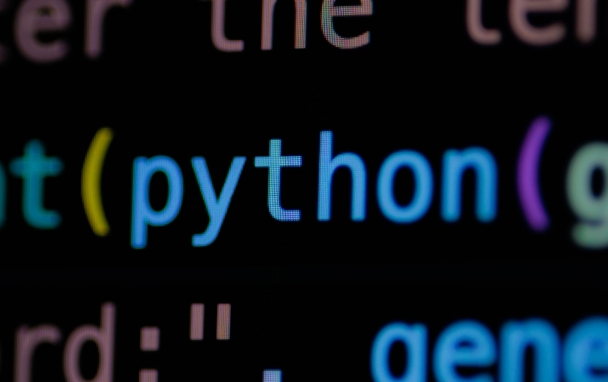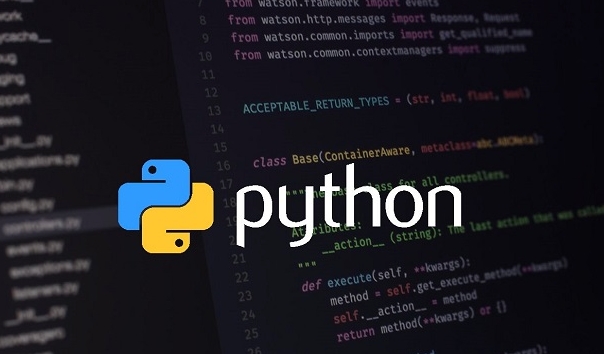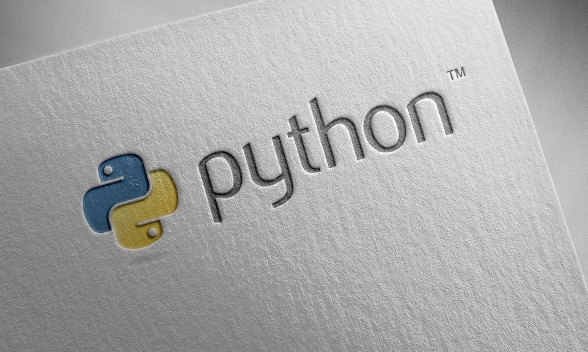Effective File Reading Techniques in Python
There are four common methods for reading files in Python. 1. Use open() and read() to suit small text files and read all content at once; 2. Read by line is suitable for large files, and processed line by line to avoid excessive memory usage; 3. readlines() can obtain a list of all lines at once, which is convenient for line by line but is not suitable for large files; 4. Specify encoding parameters to solve encoding problems. Common encodings include utf-8, gbk, etc. to ensure the correct parsing of the file content. Choosing the right method and paying attention to using with and encoding settings can improve code efficiency and stability.

Reading files is one of the most common operations in Python programming. If you just want to read a text file quickly, the method is actually very simple, but when facing different formats, sizes and scenarios, using the right method becomes very critical.

1. Basic reading: use open() and read()
This is the most basic and most commonly used reading method. Suitable for small text files, such as logs, configuration files, etc.

with open('example.txt', 'r') as file:
content = file.read()
print(content)-
withis a good habit, it automatically closes files. -
'r'means opening the file in read-only mode. - If the file is not large, it is okay to directly
read()the entire content; but if the file is large, loading it at one time may take up too much memory.
2. Read by line: suitable for large file processing
For larger files, such as logs or data files of several hundred MB, it is recommended to read them one by one:
with open('large_file.txt', 'r') as file:
for line in file:
print(line.strip())- This will not load the entire file into memory at once.
-
for line in fileis the standard writing method for line-by-line iteration. -
strip()can remove newlines and spaces at the end of each line and use them depending on the situation.
This method is very practical when dealing with log analysis and data cleaning, especially when you only need to focus on certain specific rows.

3. Use readlines() to get a list of all rows
If you really need to process each line and want to get everything as a list at once, you can use this method:
with open('data.txt', 'r') as file:
lines = file.readlines()
for line in lines:
print(line.strip())-
readlines()returns a list containing all rows. - Each item retains newlines and usually needs to be processed with
strip(). - Pay attention to memory issues, it is also not suitable for particularly large files.
4. What should I do if I have different coding? Specify encoding parameters
Many beginners encounter Chinese garbled code because they do not specify the correct encoding format. Especially on Windows, it is not UTF-8 by default.
with open('chinese.txt', 'r', encoding='utf-8') as file:
content = file.read()
print(content)- If you are not sure about the encoding of the file, you can try common options such as
utf-8,gbk, andlatin1. - It also applies when opening CSV, JSON, or HTML files.
- If an error is still reported, you may need to read in binary mode and decode manually (advanced skills).
Basically these commonly used methods. Just choose the right method according to the file size, format and your processing needs. What is not complicated but easy to ignore is: don't forget to add with , and don't easily ignore the encoding problem.
The above is the detailed content of Effective File Reading Techniques in Python. For more information, please follow other related articles on the PHP Chinese website!

Hot AI Tools

Undress AI Tool
Undress images for free

Undresser.AI Undress
AI-powered app for creating realistic nude photos

AI Clothes Remover
Online AI tool for removing clothes from photos.

Clothoff.io
AI clothes remover

Video Face Swap
Swap faces in any video effortlessly with our completely free AI face swap tool!

Hot Article

Hot Tools

Notepad++7.3.1
Easy-to-use and free code editor

SublimeText3 Chinese version
Chinese version, very easy to use

Zend Studio 13.0.1
Powerful PHP integrated development environment

Dreamweaver CS6
Visual web development tools

SublimeText3 Mac version
God-level code editing software (SublimeText3)
 Can a Python class have multiple constructors?
Jul 15, 2025 am 02:54 AM
Can a Python class have multiple constructors?
Jul 15, 2025 am 02:54 AM
Yes,aPythonclasscanhavemultipleconstructorsthroughalternativetechniques.1.Usedefaultargumentsinthe__init__methodtoallowflexibleinitializationwithvaryingnumbersofparameters.2.Defineclassmethodsasalternativeconstructorsforclearerandscalableobjectcreati
 Completed python blockbuster online viewing entrance python free finished website collection
Jul 23, 2025 pm 12:36 PM
Completed python blockbuster online viewing entrance python free finished website collection
Jul 23, 2025 pm 12:36 PM
This article has selected several top Python "finished" project websites and high-level "blockbuster" learning resource portals for you. Whether you are looking for development inspiration, observing and learning master-level source code, or systematically improving your practical capabilities, these platforms are not to be missed and can help you grow into a Python master quickly.
 Python for Quantum Machine Learning
Jul 21, 2025 am 02:48 AM
Python for Quantum Machine Learning
Jul 21, 2025 am 02:48 AM
To get started with quantum machine learning (QML), the preferred tool is Python, and libraries such as PennyLane, Qiskit, TensorFlowQuantum or PyTorchQuantum need to be installed; then familiarize yourself with the process by running examples, such as using PennyLane to build a quantum neural network; then implement the model according to the steps of data set preparation, data encoding, building parametric quantum circuits, classic optimizer training, etc.; in actual combat, you should avoid pursuing complex models from the beginning, paying attention to hardware limitations, adopting hybrid model structures, and continuously referring to the latest documents and official documents to follow up on development.
 python one line if else
Jul 15, 2025 am 01:38 AM
python one line if else
Jul 15, 2025 am 01:38 AM
Python's onelineifelse is a ternary operator, written as xifconditionelsey, which is used to simplify simple conditional judgment. It can be used for variable assignment, such as status="adult"ifage>=18else"minor"; it can also be used to directly return results in functions, such as defget_status(age):return"adult"ifage>=18else"minor"; although nested use is supported, such as result="A"i
 Accessing data from a web API in Python
Jul 16, 2025 am 04:52 AM
Accessing data from a web API in Python
Jul 16, 2025 am 04:52 AM
The key to using Python to call WebAPI to obtain data is to master the basic processes and common tools. 1. Using requests to initiate HTTP requests is the most direct way. Use the get method to obtain the response and use json() to parse the data; 2. For APIs that need authentication, you can add tokens or keys through headers; 3. You need to check the response status code, it is recommended to use response.raise_for_status() to automatically handle exceptions; 4. Facing the paging interface, you can request different pages in turn and add delays to avoid frequency limitations; 5. When processing the returned JSON data, you need to extract information according to the structure, and complex data can be converted to Data
 python run shell command example
Jul 26, 2025 am 07:50 AM
python run shell command example
Jul 26, 2025 am 07:50 AM
Use subprocess.run() to safely execute shell commands and capture output. It is recommended to pass parameters in lists to avoid injection risks; 2. When shell characteristics are required, you can set shell=True, but beware of command injection; 3. Use subprocess.Popen to realize real-time output processing; 4. Set check=True to throw exceptions when the command fails; 5. You can directly call chains to obtain output in a simple scenario; you should give priority to subprocess.run() in daily life to avoid using os.system() or deprecated modules. The above methods override the core usage of executing shell commands in Python.
 python seaborn jointplot example
Jul 26, 2025 am 08:11 AM
python seaborn jointplot example
Jul 26, 2025 am 08:11 AM
Use Seaborn's jointplot to quickly visualize the relationship and distribution between two variables; 2. The basic scatter plot is implemented by sns.jointplot(data=tips,x="total_bill",y="tip",kind="scatter"), the center is a scatter plot, and the histogram is displayed on the upper and lower and right sides; 3. Add regression lines and density information to a kind="reg", and combine marginal_kws to set the edge plot style; 4. When the data volume is large, it is recommended to use "hex"
 python if else example
Jul 15, 2025 am 02:55 AM
python if else example
Jul 15, 2025 am 02:55 AM
The key to writing Python's ifelse statements is to understand the logical structure and details. 1. The infrastructure is to execute a piece of code if conditions are established, otherwise the else part is executed, else is optional; 2. Multi-condition judgment is implemented with elif, and it is executed sequentially and stopped once it is met; 3. Nested if is used for further subdivision judgment, it is recommended not to exceed two layers; 4. A ternary expression can be used to replace simple ifelse in a simple scenario. Only by paying attention to indentation, conditional order and logical integrity can we write clear and stable judgment codes.







